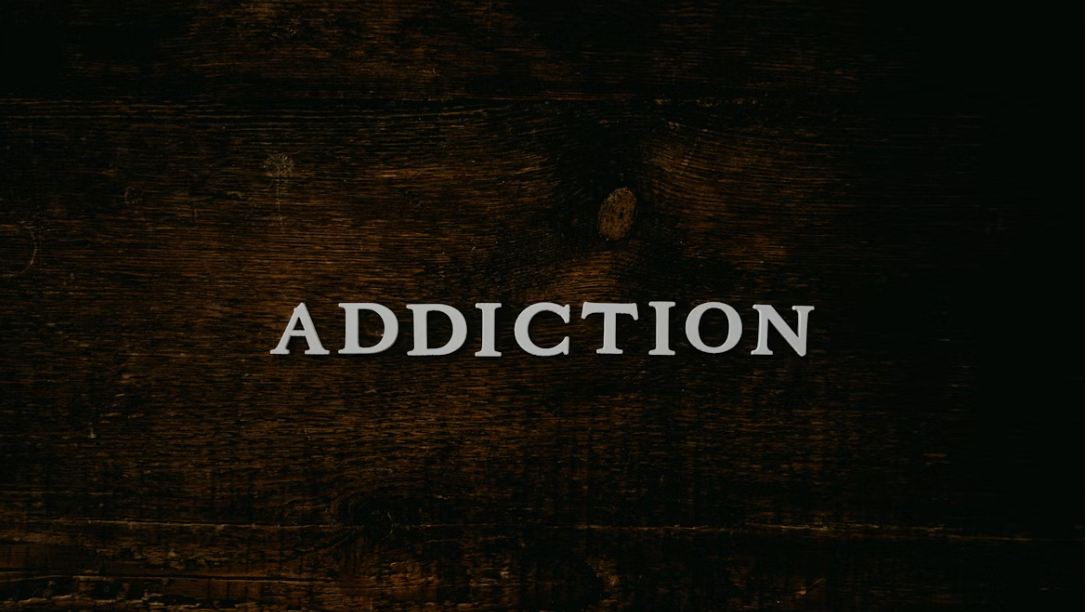By Efterpi Komninou,
Addictions are variable in nature: they are not restricted to drug-use. People can be addicted to using their phones, to getting validation from outside sources, to restrictive thinking patterns, to certain emotional responses, to working, eating, exercising, adrenaline-seeking, spending money and so on. There are all sorts of addictions and addictive behaviors that cause varying degrees of harm due to the fact that addiction in principle is linked to excessive use which becomes harmful exactly at the point that it becomes excessive. It is a more common phenomenon than one would actually think if one takes into account that there are also other types of addiction besides substance use disorders.
Addiction is a phenomenon that requires understanding in order to be successfully treated. Yet it is rather common for it to be misunderstood when it is viewed in moralistic terms instead of psychological, medical, sociological ones. This moralistic perspective on addictive behaviors has led to unfair, restrictive and harmful criticisms, which are blameful and guilt-provoking. The criticisms this mindset inspires are based on the assumption that the addicted person is at fault for their situation having made conscious choices to go down certain unfortunate paths, which is not always the case-if it ever is. Denying the argument that they are at fault and instead proposing that there are more causal mechanisms that explain one’s seemingly voluntary choices does not mean that everything around the addiction is deterministic.
It does not imply that there is complete absence of control and that the addiction has occurred almost inevitably due to external forces acting upon a person, it is somewhere in between. This is because examining how much control the person has over their situation is a slippery slope, it is useful for self-reflection and understanding yet many times it proves itself damaging and unhelpful when it becomes an excuse for moralizing and characterizing individuals in negative terms. When this takes place it’s usually a result of egotism rather than practicality and reason.

There is a word for the negative prejudices and stereotypes experienced by people with addictions: “stigma”. The process of creating stigma is named “stigmatization”. Stigma functions as a stain for these people’s reputation, thus it results in status loss, reductive labeling and discriminatory treatment that goes as far as rejection and social exclusion. It makes it hard for people to seek treatment for their addictions as it creates restricting beliefs, fear of social isolation/rejection. These attitudes towards those that have addictions usually become internalized resulting to self-stigmatization where the person experiences intense feelings of shame, guilt and self-hatred. In turn, those societally provoked feelings lead people into the same vicious cycle that first brought upon the addiction: in an ultimate effort to numb unbearable feelings (pain, anxiety, despair, shame) people resort to substances or behaviors that they are usually aware are not healthy patterns.
Additionally, stigma is reinforced through certain language choices that have been disregarded now by the medical community for being unmedical or stigmatizing to individuals. Some of these include the following: abuser, junkie, drunk, dirty, “getting clean”, alcoholic, user, habit, addict. They are no longer of service as they either imply a negative stance or they make addiction appear as a systematic choice, rather than an unfortunate side-effect of other unresolved issues (unresolved trauma, emotional regulation issues, low self-esteem self-destructive patterns etc.).
Using first-person language is a good first step in destigmatizing the individual. Instead of alcoholic or junkie one should prefer to refer to them as people with an alcohol use disorder/ opioid use disorder and so on. When communicating that a person has “a problem with drugs” for instance, it is a better prompting for understanding as it inspires practical follow-up questions and not characterizations (“what sort of problem”). In this way, the implication that is made is this: drug-using is part of a larger issue and not a part of someone’s character. In this way there are neither assumptions about addiction’s causal mechanisms or how one should intervene, nor do people get identified with their disorders.
Changing medical language is a good start for changing mindsets to follow, but it is going to take time. For much of its history humanity has been keen on viewing behavioral phenomena through a morality perspective when in fact the truth is that when an individual’s mental wellbeing gets compromised or they experience chronic pain the higher the likelihood they will resort to some sort of addiction in order to calm their nervous system or to distract themselves. Bukowski draws the inner workings of a mind in addiction perfectly in his poem “addiction”:
“I know I should stop,
I have told myself
a thousand
*******
times
but my mind won’t listen
when it is restless and
needs comforting,
I am lighting
cigarette
after cigarette,
drinking *****,
whiskey, gin,
anything hard
to really put an end
to the voices in my head;
but they keep coming back
they’re not backing down,
I’m being eaten
from the inside out”
—Charles Bukowfski

Implicit bias, the unconscious attitudes and stereotypes individuals hold surrounding addiction, significantly impact treatment planning and subsequent results for drug use disorders by influencing healthcare professionals’ perceptions, decisions, and interactions with patients, many times hindering recovery. Negative bias leads to an increased likelihood of misinterpreting signs and symptoms as being from drug use when due to a different cause, resulting in misdiagnosis and inappropriate treatments.
Reflecting on biases and addressing them should become a priority as it could provide great assistance to people with addictions both on an interpersonal and a societal level. Education is key. Mentalization or imagining the other person’s experience would also assist greatly in growing empathy and compassion around addiction which is an essential first step in treatment. Moreover, it should become a goal to create safe spaces for the individuals to be able to become vulnerable as to expose what’s troubling them, which will reveal their unmet needs that they seek to satisfy through those harmful means.
Addictions are not moral failings, weaknesses, or choices. They are not character flaws.
Addictions are attempts to soothe and comfort one’s internal turmoil; they are last-gasp attempts in meaning-making, in answer seeking, in responding to hopelessness and deep sadness when there seems to be no other way out of a situation and no other way to better one’s circumstances. Addictions are often side-effects of a range of underlying mental health issues (depression, anxiety disorders, schizophrenia etc.) and sociopolitical conditions that drag people down without them being conscious about it. It is quite common that mental issues are attributed to the individual’s psychology and biochemistry while that’s not always the whole case: Society’s pathogenies can affect a person’s psyche and should also be considered in our efforts to understand the complexity of addictions. Furthermore, addiction becomes a medical issue as it affects our bodily functions therefore it can require medical treatment. The only certain thing is that it cannot be changed through blame or unhelpful advises, it will only worsen.
There needs to be a reevaluation of priorities in order to bring out the best out of people that at some point have lost their way. By making understanding our first priority we might be able to assist more in the journey of recovery. Compassion and understanding can go a long way or at least won’t cause more harm to the already harmed individual. It is most probable that we all had some sort of addiction as a coping mechanism at certain points in our lives. Maybe this realization will humanize the problem to our eyes a little more. And as a last note, it must become clear to those people that they are not alone in their experiences. And lastly, as said in the popular video game The Last of Us – “When you’re lost in the darkness, look for the light”.
“-He had a breakdown, it happens to people
-If they are weak.
-Live longer, you’ll see. Life can even bring down the strong”
—“Loving Vincent”
References
- Stereotypes of Addiction in the United States: A Descriptive and Experimental Approach to Identifying Addiction Stereotypes and the Effectiveness of Positive-Counterstereotype Stigma-reduction Tactics. Diss. Available here
- “Determinism and Destigmatization: Mitigating Blame for Addiction”. Neuroethics, 14(2). 219–230.
- addiction. Hello*Poetry. Available here




